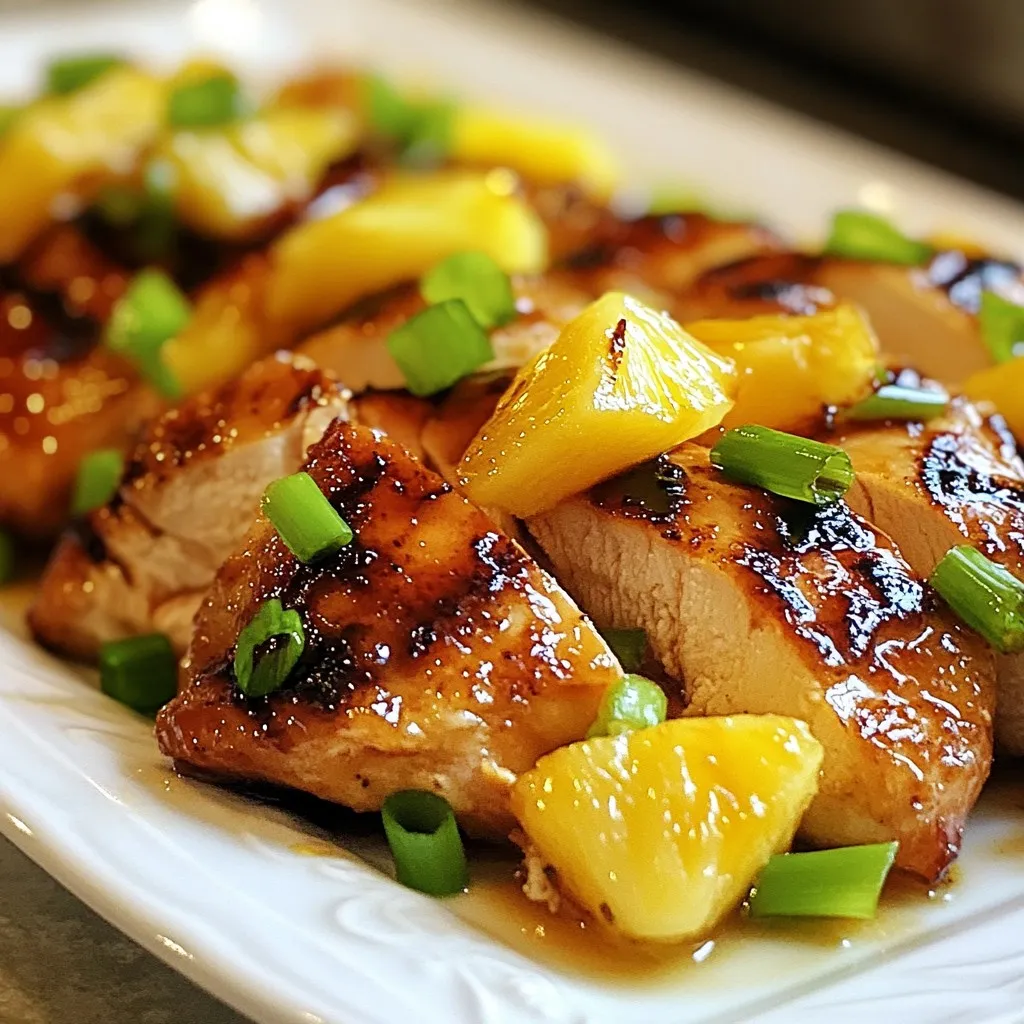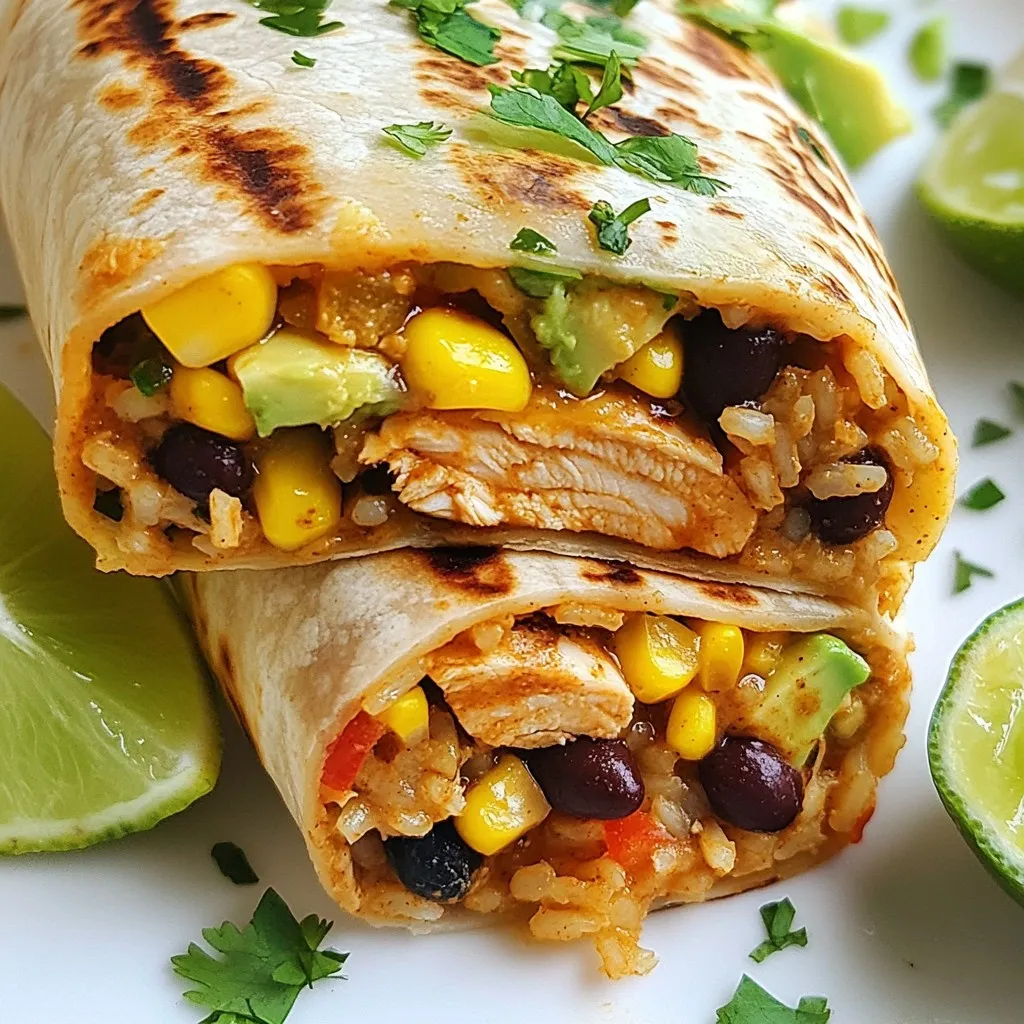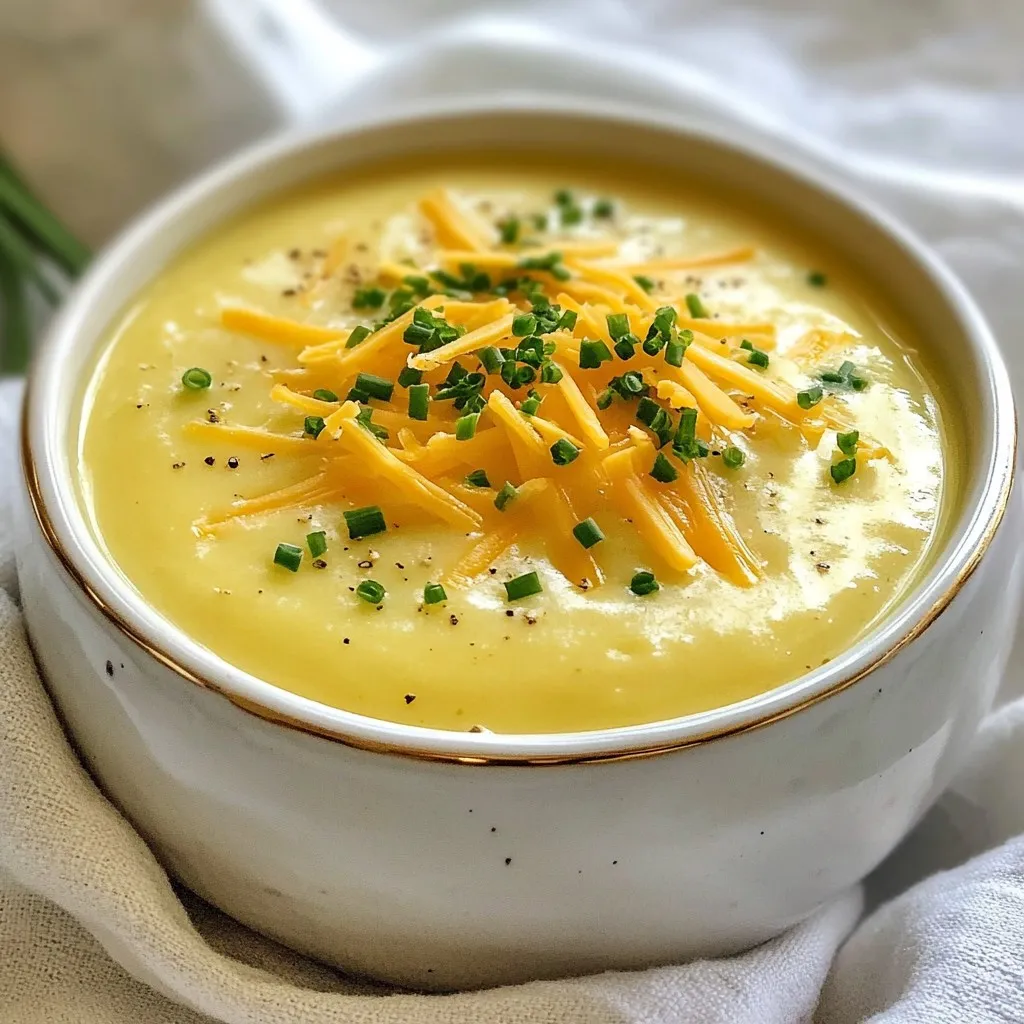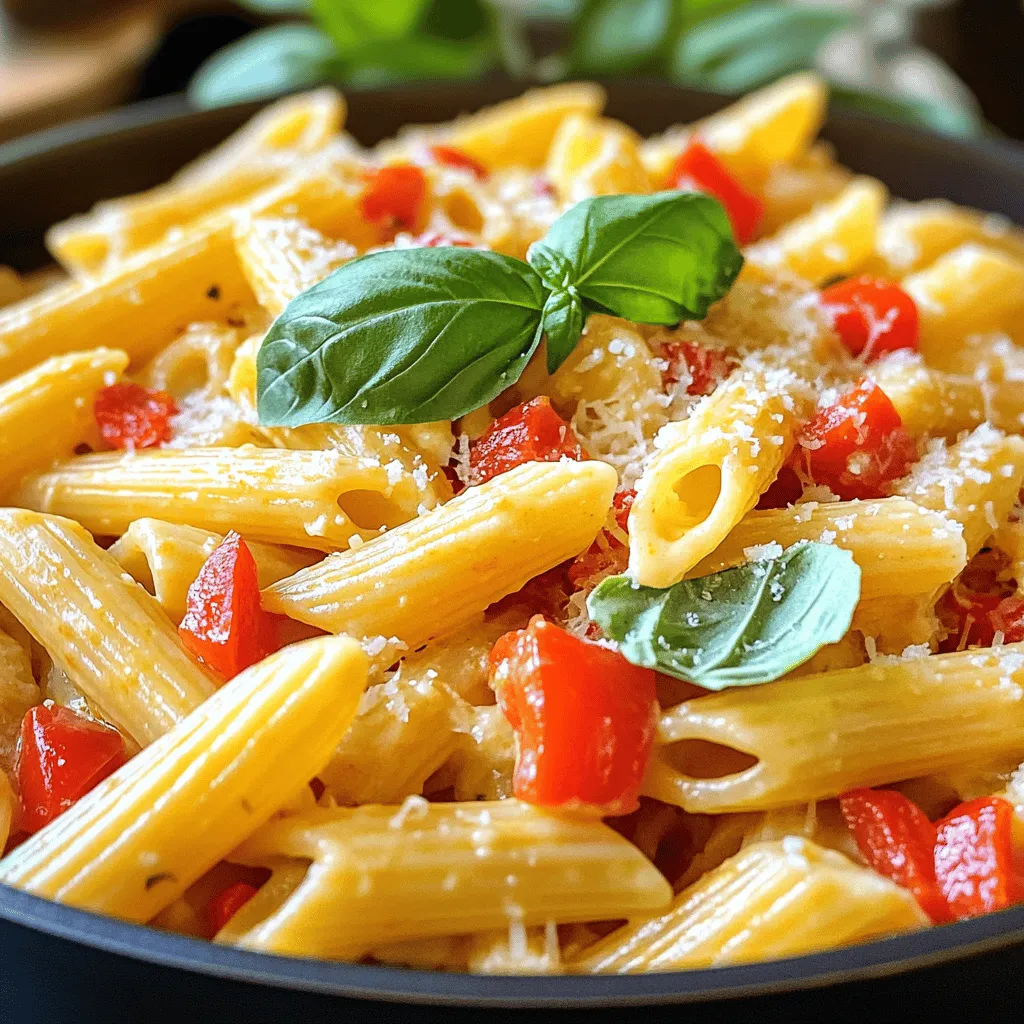
Dive into the creamy goodness of my Creamy Cottage Cheese Red Pepper Pasta Delight! This dish turns simple ingredients into a rich and satisfying meal. You’ll learn the best pasta to use and how to make it creamy without heaviness. Plus, I’ll share tips for quick prep and optional add-ins. Ready to impress your taste buds? Let’s get started and create something delicious together!
Ingredients
Pasta Selection
For this creamy cottage cheese red pepper pasta, I recommend using penne or fusilli. Both shapes hold sauce well. Penne has ridges that catch the creamy sauce. Fusilli twists make every bite flavorful. Aim for about 8 ounces of pasta. This amount serves two to three people perfectly.
Key Ingredients for Creaminess
The star of this dish is cottage cheese. Use one cup of full-fat cottage cheese for the best creaminess. It adds richness without heavy cream. Next, roast one large red bell pepper until it’s charred and diced. This adds a sweet and smoky flavor. Don’t forget one clove of finely minced garlic to boost the taste. A tablespoon of extra virgin olive oil adds healthy fats. For herbs, use a teaspoon of dried basil and half a teaspoon of smoked paprika for a hint of warmth. Season with salt and freshly cracked black pepper to taste.
Optional Garnishes and Seasonings
To make your dish shine, consider adding fresh basil leaves as a garnish. They give a lovely aroma and bright color. If you want a bit more indulgence, sprinkle grated Parmesan cheese on top before serving. This adds a salty, nutty flavor that balances the creaminess perfectly. You can also adjust seasonings based on your taste. Some extra pepper can kick up the flavor!
Step-by-Step Instructions
Cooking the Pasta Perfectly
To start, fill a large pot with water and add salt. Bring this water to a boil. Once it bubbles, add 8 oz of your chosen pasta. I like penne or fusilli for this dish. Cook the pasta until it is al dente, which usually takes about 8–10 minutes. After cooking, drain the pasta, but save about 1/2 cup of the water for later. Set the pasta aside for now.
Sautéing Garlic for Flavors
Next, heat a large skillet over medium heat. Pour in 1 tablespoon of extra virgin olive oil. Once the oil is hot, add 1 finely minced clove of garlic. Sauté the garlic for about 30 seconds. You want it to smell good, but don’t let it burn. This step brings out a rich flavor that makes your dish shine.
Preparing the Creamy Cottage Cheese Mixture
Now, grab a bowl and add 1 cup of cottage cheese. I recommend using full-fat for a richer taste. Next, add the diced roasted red bell pepper, 1 teaspoon of dried basil, and 1/2 teaspoon of smoked paprika. Sprinkle in a pinch of salt and pepper too. Blend this mixture using a hand blender or food processor. You want it to be smooth and creamy, like a dreamy sauce.
Combining and Tossing the Ingredients
In the skillet with your sautéed garlic, add the cooked pasta. Then, pour the creamy cottage cheese mixture over the pasta. If the sauce seems too thick, slowly add the reserved pasta water, one spoon at a time. Toss everything together well, ensuring each piece of pasta gets coated in that creamy goodness.
Final Seasoning and Serving
Taste the pasta to see if it needs more seasoning. Adjust with extra salt and freshly cracked black pepper as needed. Once it’s just right, serve the pasta on plates. For a lovely touch, garnish with fresh basil leaves and sprinkle some grated Parmesan cheese on top. Enjoy this creamy delight!
Tips & Tricks
Best Practices for Creamy Texture
To get that rich, creamy texture in your pasta, use full-fat cottage cheese. It blends smoothly and gives your dish a nice creaminess. When mixing, use a hand blender or food processor. This helps break down the curds and creates a velvety sauce. If your sauce looks thick, add a bit of the reserved pasta water. Just a little at a time will help reach the perfect creaminess.
Enhancing Flavor with Seasonings
Seasonings bring your dish to life. Start with fresh garlic sautéed in olive oil for a great base. Adding dried basil and smoked paprika gives depth. Don’t forget to taste as you go. A pinch of salt and freshly cracked black pepper can make a big difference. Feel free to experiment with other herbs, like oregano or thyme, to find your favorite flavor.
Presentation Tips for an Elegant Dish
A beautiful plate makes the meal even better. Use a ring mold to shape the pasta on the plate. This gives it a nice, round look. Drizzle a little olive oil around the edges for a polished finish. Top with fresh basil leaves and sprinkle some grated Parmesan cheese for that gourmet touch. Your dish will look as good as it tastes!
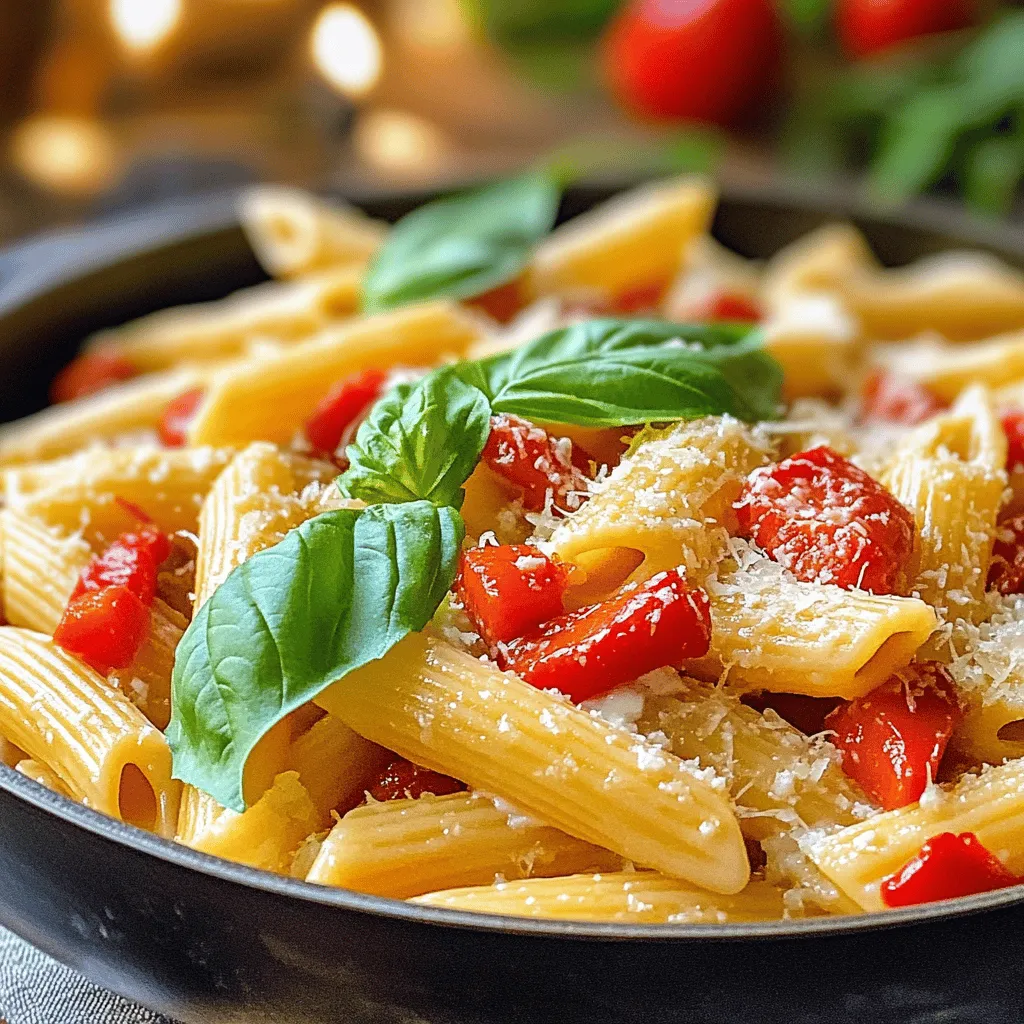
Variations
Adding Protein: Chicken or Shrimp
You can boost this dish by adding protein. Chicken or shrimp works great. If you use chicken, grill or sauté it first. Dice it into small pieces. Add it to your pasta when you mix in the sauce. For shrimp, simply sauté them in olive oil until they turn pink. Then toss them in with the pasta. Both options add flavor and make this dish heartier.
Vegetarian Alternatives: Using Zucchini or Spinach
If you prefer a veggie twist, try zucchini or spinach. For zucchini, slice it thin and sauté with garlic. Mix it with the pasta for added crunch. Spinach is also a great choice. Simply toss in fresh spinach at the end of cooking. It wilts quickly and adds a nice color. Both options keep your meal light and fresh.
Gluten-Free Option: Pasta Substitutes
Need a gluten-free choice? There are many pasta substitutes available. Try rice pasta or chickpea pasta. These options mimic the texture of regular pasta. Cook them just like you would traditional pasta. They pair well with the creamy sauce. Enjoy a delicious meal without gluten, and still get that creamy goodness.
Storage Information
How to Store Leftovers
Storing leftover Creamy Cottage Cheese Red Pepper Pasta is simple. First, let the pasta cool to room temperature. Then, transfer it to an airtight container. Make sure to seal it tightly to keep out air. This helps maintain freshness. You can store it in the fridge for up to three days. If you plan to eat it later, proper storage is key.
Reheating Instructions for Best Results
Reheating this pasta dish is easy. You can use the stovetop or microwave. If you choose the stovetop, add the pasta to a skillet. Add a splash of water or olive oil to keep it moist. Heat over medium heat, stirring often until it warms through. If using a microwave, place the pasta in a microwave-safe bowl. Cover it with a lid or a damp paper towel. Heat in short bursts, stirring in between. This helps ensure even warming without drying it out.
Freezing Options for Long-Term Storage
Freezing is a great option for long-term storage. To freeze, portion the pasta into individual servings. Place each portion in a freezer-safe bag or container. Remove as much air as possible to prevent freezer burn. Label each bag with the date for easy tracking. You can freeze it for up to three months. When ready to eat, thaw it in the fridge overnight. Reheat it using the stovetop or microwave for the best taste.
FAQs
Can I use low-fat cottage cheese?
Yes, you can use low-fat cottage cheese. However, it may not be as creamy. Full-fat cottage cheese gives the best texture. It adds richness and depth to the sauce. If you want a lighter option, low-fat works. Just know it might change the flavor a bit.
How can I make this dish spicier?
To spice things up, add crushed red pepper flakes. Start with a pinch and adjust to your taste. You can also use hot sauce for heat. Another option is to add a diced jalapeño while cooking the garlic. This will bring a nice kick to the dish.
What type of pasta works best for this recipe?
Penne or fusilli works best for this recipe. Both shapes hold the sauce well. Penne has tubes that trap the creamy mix. Fusilli’s curls catch every bit of flavor. You can try other shapes, but stick to these for the best results.
Can I prep this dish ahead of time?
Yes, you can prep this dish ahead of time. Cook the pasta and make the sauce in advance. Store them separately in the fridge. When ready to eat, just combine and heat. This makes for a quick meal on busy days.
In this post, we explored how to make a creamy pasta dish. You learned about choosing the right pasta and key ingredients for creaminess. I guided you through each cooking step, from boiling the pasta to sautéing garlic. You discovered tips for great texture and flavor. We also discussed tasty variations and easy storage methods.
Embrace these methods and make this dish your own. Happy cooking!

Creamy Cottage Cheese Red Pepper Pasta
A delicious and creamy pasta dish featuring cottage cheese and roasted red peppers.
Ingredients
Instructions
- 1
In a large pot, bring plenty of salted water to a vigorous boil. Add the pasta and cook according to the package instructions until it reaches an al dente texture. Once cooked, drain the pasta, reserving about 1/2 cup of the cooking water for later use. Set the pasta aside.
- 2
In a large skillet, heat the olive oil over medium heat. Once hot, add the minced garlic and sauté for approximately 30 seconds, or until it becomes fragrant. Be careful not to let it burn.
- 3
In a separate bowl, combine the cottage cheese, roasted red pepper, dried basil, smoked paprika, and a pinch of salt and pepper. Use a hand blender or food processor to blend the mixture until it achieves a smooth and creamy consistency.
- 4
In the skillet with the sautéed garlic, add the cooked pasta, then pour the creamy cottage cheese mixture over the top. If the sauce appears too thick for your liking, slowly incorporate the reserved pasta water, a little at a time, until the desired creamy consistency is achieved. Toss everything thoroughly to ensure the pasta is evenly coated with the sauce.
- 5
Sample the pasta and adjust the seasoning with additional salt and freshly cracked pepper as necessary to enhance the flavors.
- 6
Divide the pasta onto serving plates. Garnish with fresh basil leaves and sprinkle with grated Parmesan cheese if desired.
Chef's Notes
For an elegant presentation, consider using a ring mold to shape the pasta on the plate.

Recipe Creator
Remy
I’m Chef Remy, your recipe companion, here to bring warmth, bold taste, and simplicity to your kitchen.
View My Recipes